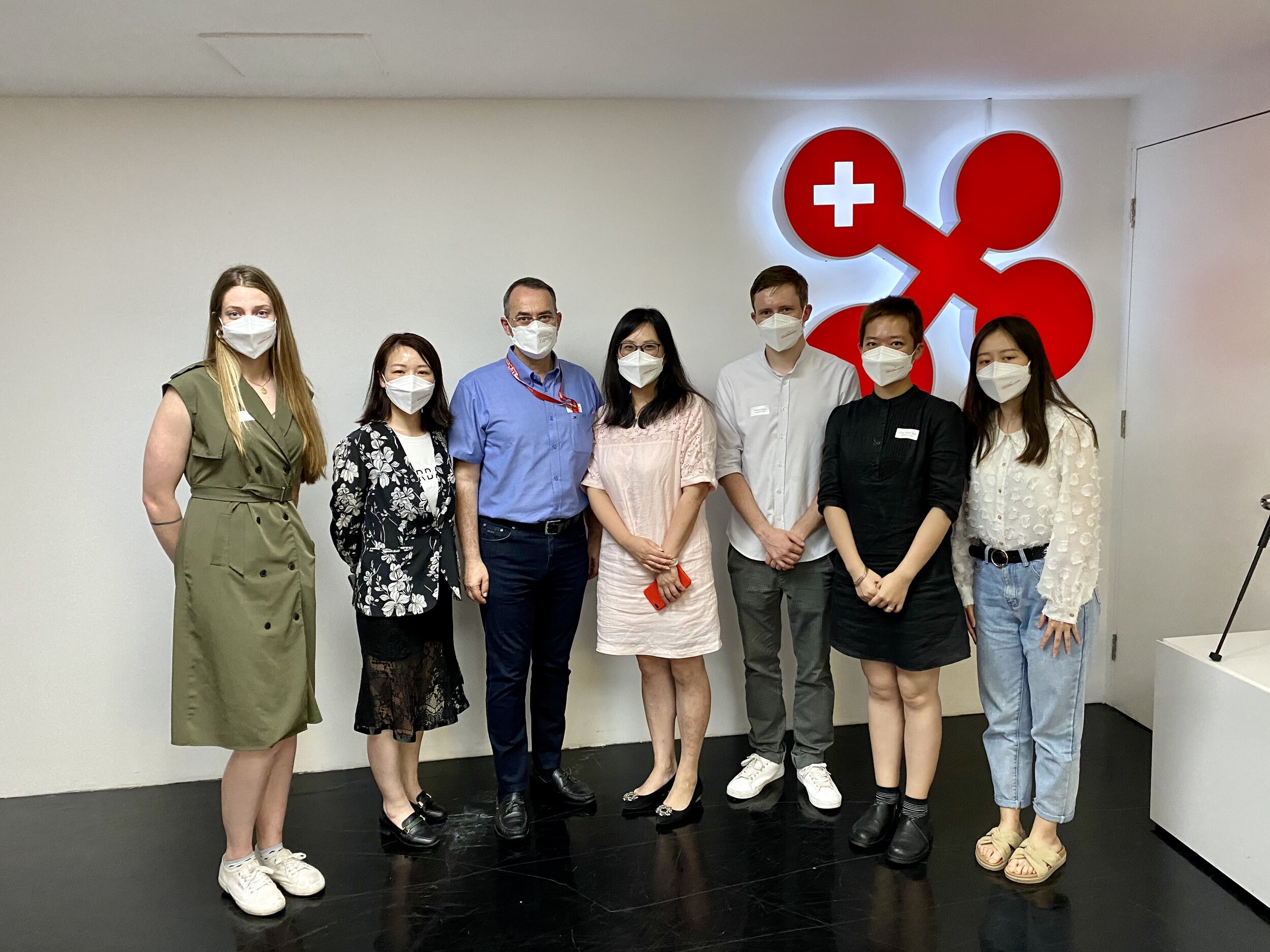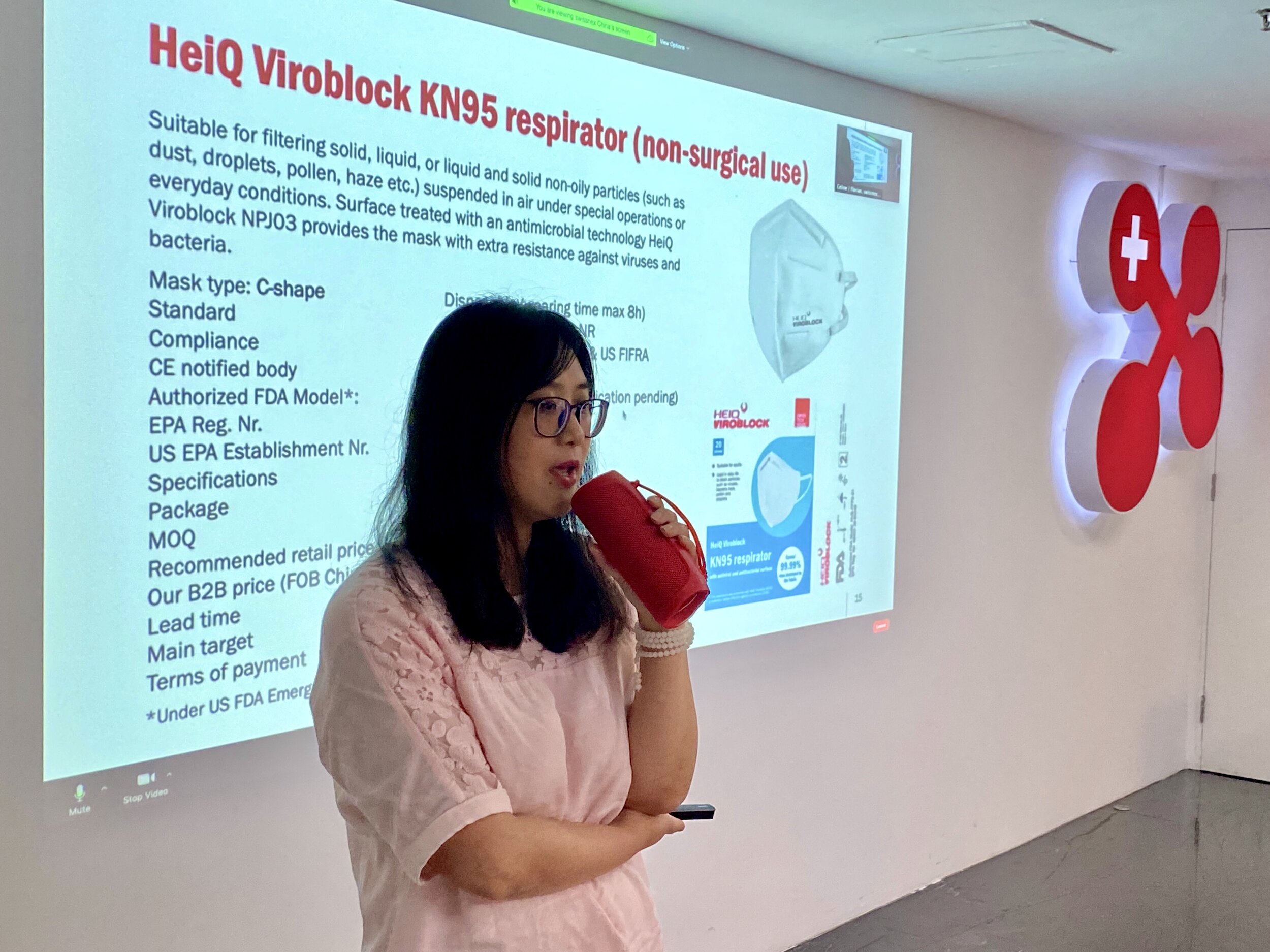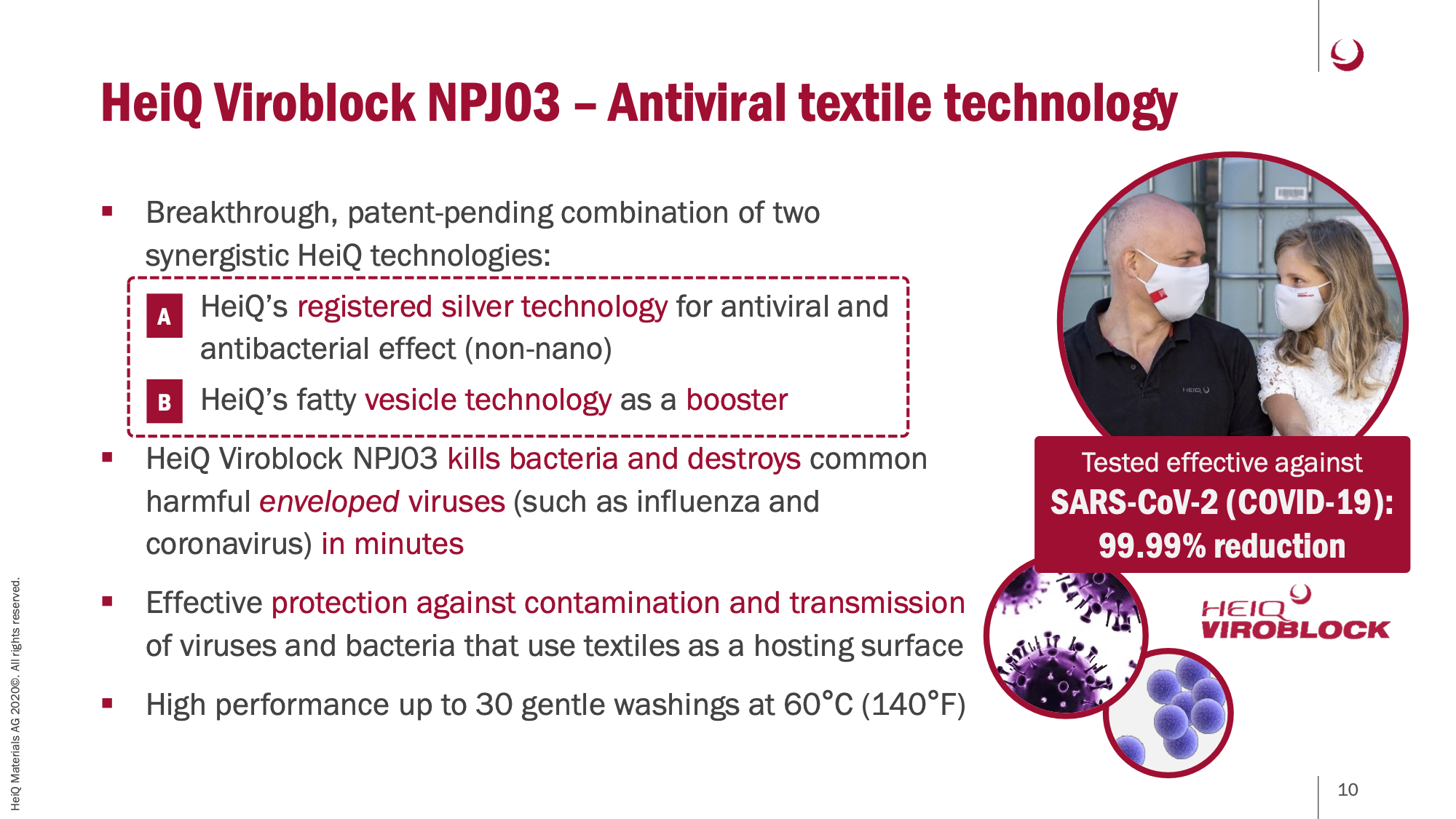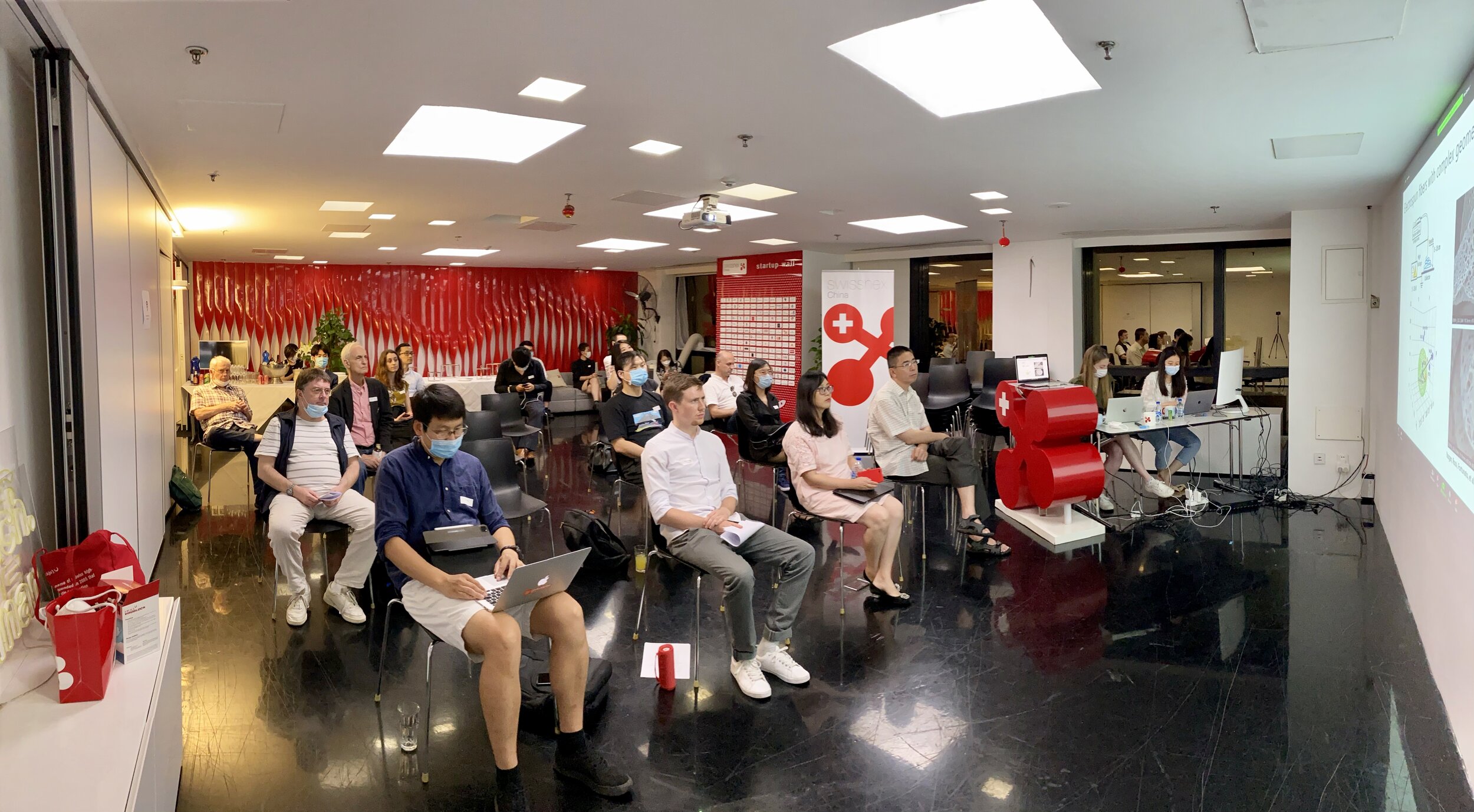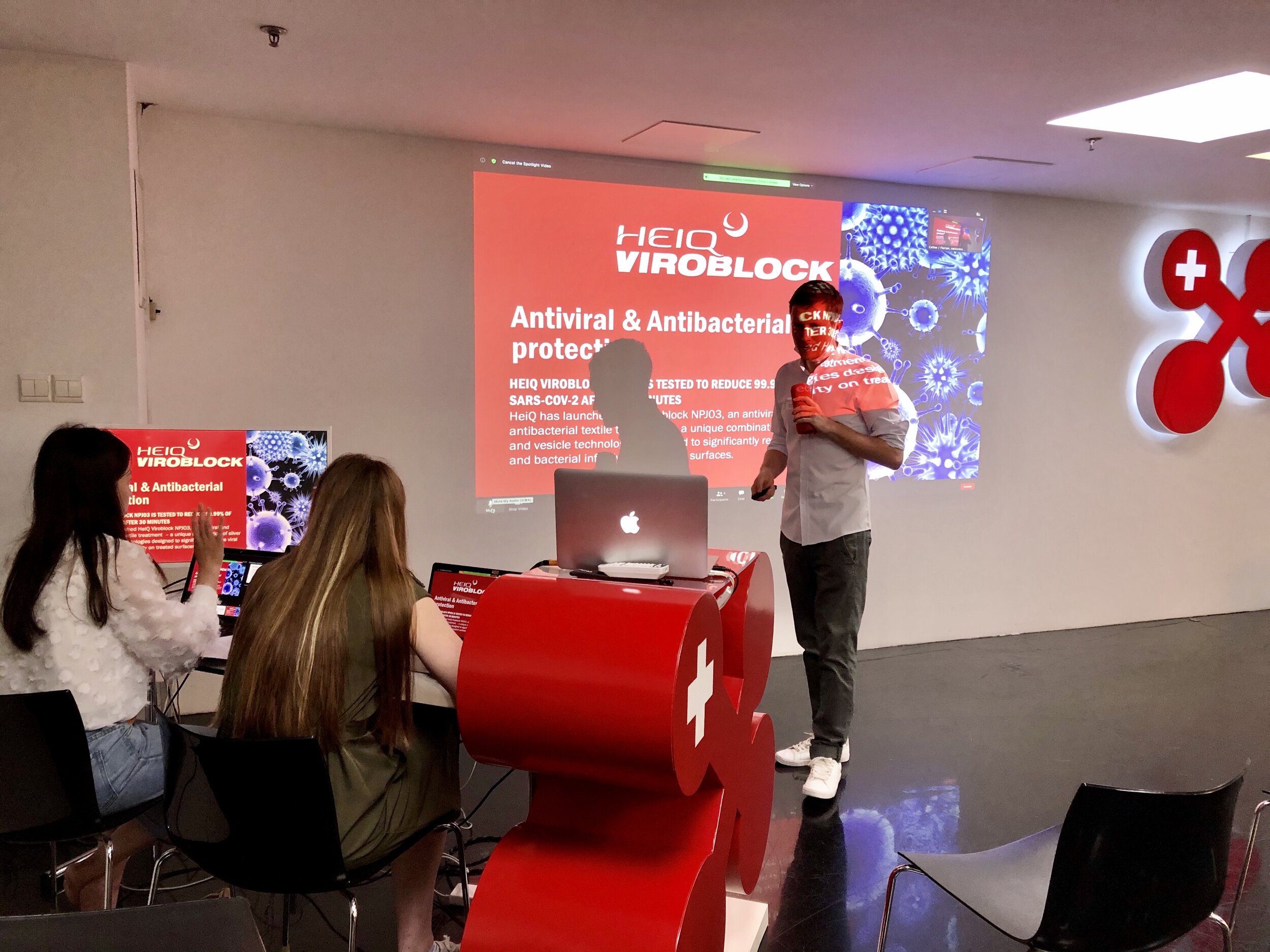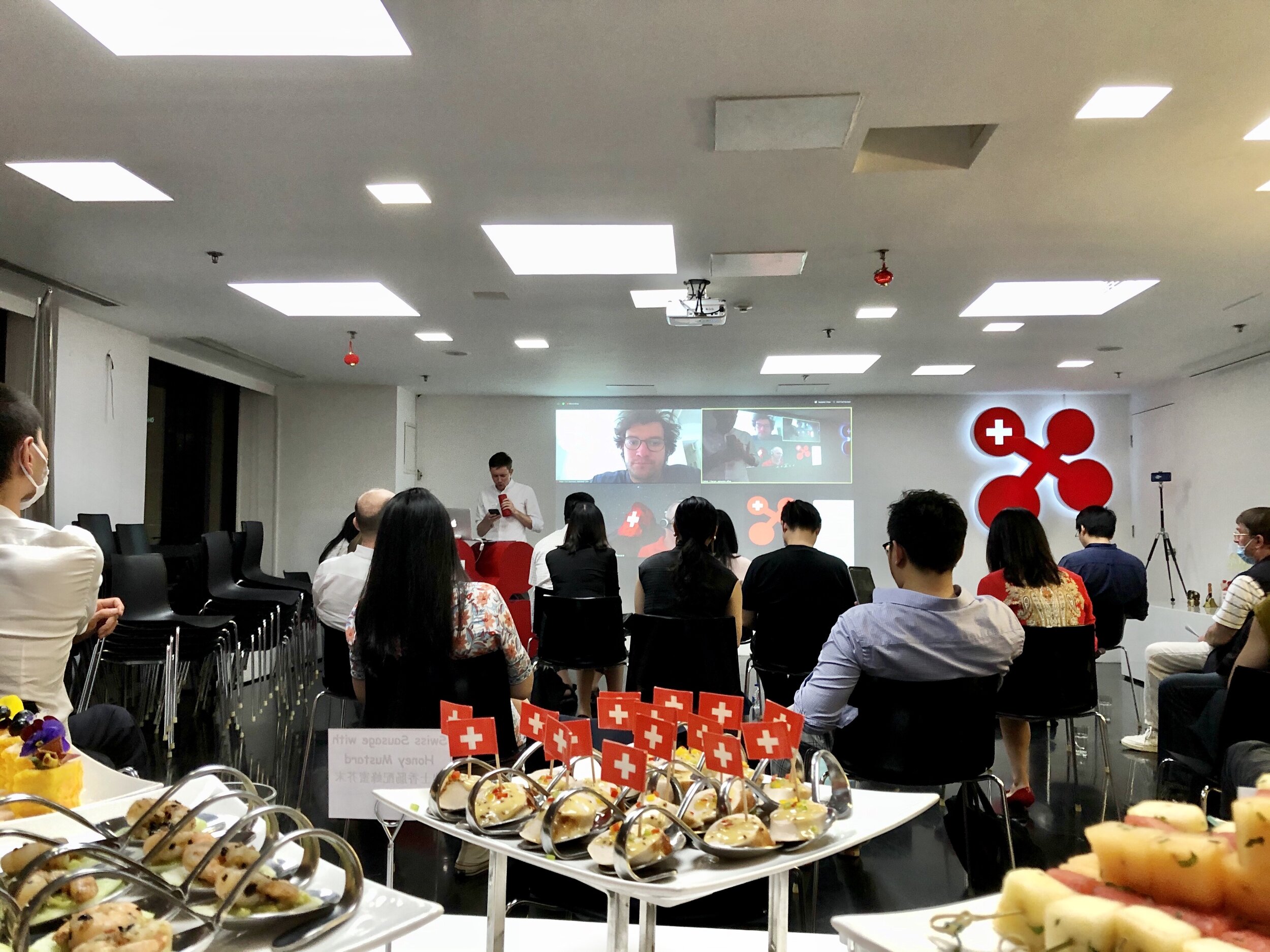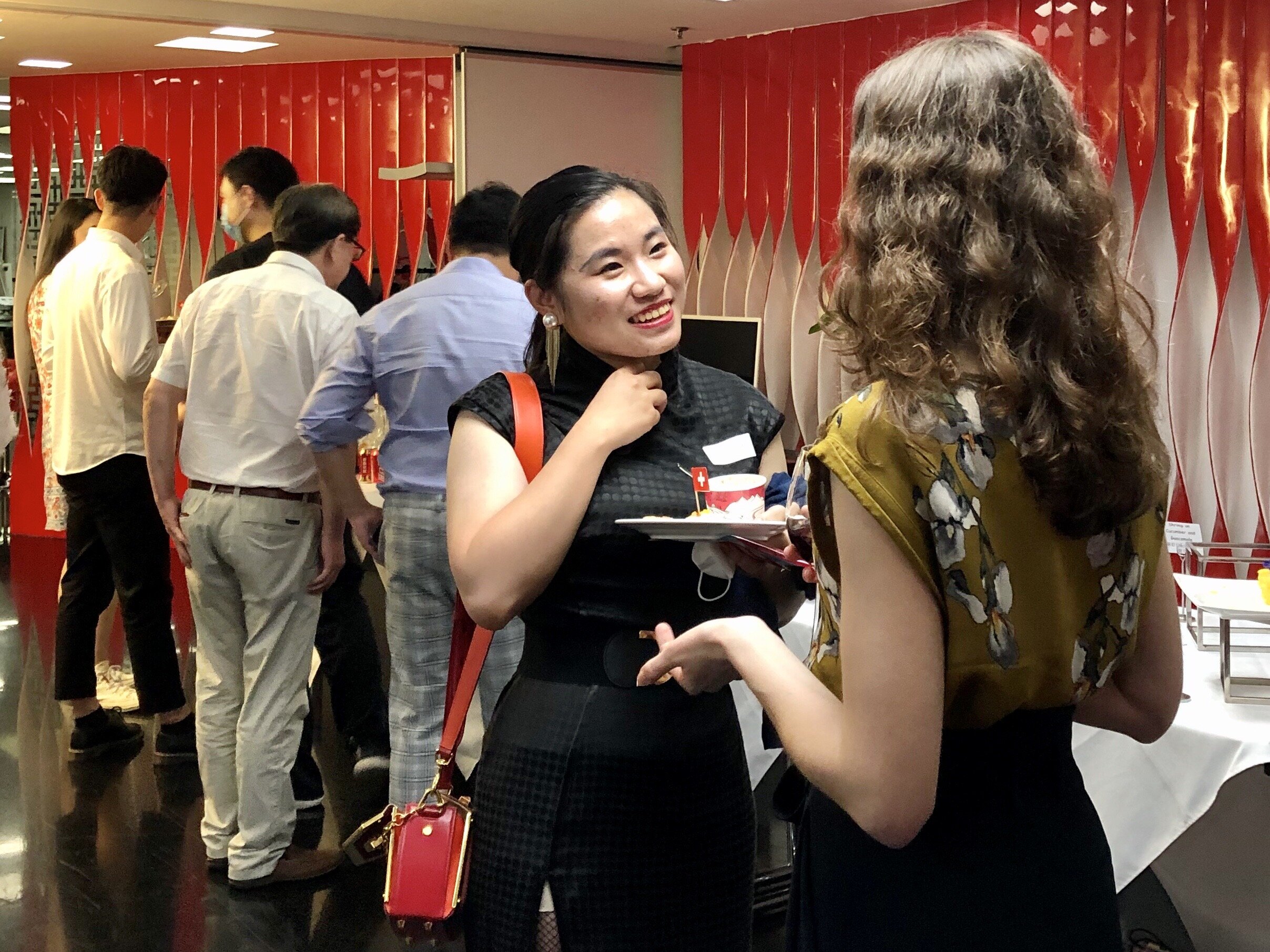By Florian Moeri, Project Coordinator at swissnex China
Face masks are one of the most discussed topics in recent times. The onset of the COVID-19 pandemic has prompted the widespread use of face masks by the general public to prevent the transmission of the novel coronavirus. With this topic comes a broad field of further action: nation-wide projects to improve face mask technology or ventures by private companies to work on the technology and innovation of new masks.
Last week, on June 18, we had the chance to get an exciting insight into all of these areas. The 18th edition of our Café des Sciences focused on MaskTech. This was also a special “first” for us: with on-site guests in our office and online viewers on Zoom, we hosted our first hybrid event.
Many thanks again to the speakers for their precious time and availability – their inputs on this complex topic are very much appreciated and well-received!
On-site speaker:
Celine Huang (黄秀蔚)
Chief Executive Officer (CEO) for Greater China at HeiQ
Online speakers:
Prof. Dr. René Rossi
Head of Laboratory for Biomimetic Membranes and Textiles at EmpaCarlo Centonze
Co-Founder and Chief Executive Officer (CEO) at HeiQ GroupThéo-Tim Denisart
Co-Founder of Helvitek Labs
The first to give his presentation was Prof. Dr. René Rossi, Head of the Laboratory for Biomimetic Membranes and Textiles at Empa. Together with his team, he is developing new fiber technologies for applications in Health and MedTech. Prof. Dr. Rossi is also a member of the Swiss National COVID-19 Science Task Force, a scientific expert group that advises the government and political authorities in different questions around the pandemic. In the frame of this science taskforce it was asked by the government to create recommendations for so-called “community masks” (textile-based or clothe masks that have no specific protection). If they are outworn, they would have to fulfill some specifications:
The Swiss National COVID-19 Science Task Force compiled recommendations for so-called “community masks”.
Parallel to drafting these recommendations, the group – initiated by the Swiss Confederation – has started to advise different companies on how to produce community and surgical masks. These activities are being financed by the Swiss Innovation Agency, Innosuisse. Together with ETH Zurich, EPFL, and the Spiez Laboratory, already 47 companies are working on the new design of masks.
The strategy of the Innosuisse project ReMask:
Optimizing the balance between comfort and protection of a face mask (focus on sustainable solutions, i.e. washing or sterilizing)
Modeling and simulating filtration performance of face masks
Developing new analytical methods (virosomes) for test analysis (focus on harmless substances to look at the efficiency of antiviral coatings)
Developing new mask systems (using cutting-edge technologies like advanced manufacturing)
Concentrating on the first point, Prof. Dr. Rossi explained how electrospinning technology can be used to form single- or multi-fiber and thus produce membranes. In this versatile technology, many parameters can be changed during production and the mechanics of the structure can be formed to the best possible shape (breathable and protective). Besides, the mixture of different polymers allows to influence the diameter of the fiber and to work on a transparent mask (Project HelloMask). At the end of the cycle, the membrane is then placed on a normal woven mask to achieve the intended effect.
Next, we welcomed a speaker duo: Carlo Centonze, CEO at HeiQ Group and Celine Huang, CEO for Greater China at HeiQ, CEO at HeiQ Group. Carlo started with a brief outline of how he co-founded the company as an ETH Zurich spin-off in the Swiss Alps in 2015. The business is still strongly anchored in fundamental research but has also taken a big step out into becoming one of the leading manufacturers of specialty technologies for the textile industry.
Carlo further introduced HeiQ’s latest technology, Viroblock, as one of the leading antiviral functionalizations – especially for masks. The solution is rooted in HeiQs historical DNA as a specialty chemistry company: a silver technology with a very strong antibacterial but also antiviral effect thanks to its surface charge. Fatty vesical technology helps as a booster against the contamination of the mask itself. And that is how Viroblock is tested effective against SARS-CoV-2 (COVID-19) with a virus reduction of 99.99%. Celine, speaking live in our office, added that this rate is achieved with an application of maximum 20% of the liquid chemical on the non-woven material. Two types of face masks have been produced with this manufacturing method since March: the HeiQ Viroblock FFP2 respirator (non-surgical use) and HeiQ Viroblock KN95 respirator (non-surgical use). In addition, the Viroblock technology stays effective on washable masks (up to 30 washes).
HeiQ Viroblock is one of the first textile technologies in the world to be proven effective against SARS-CoV-2 (by the Peter Doherty Institute for Infection and Immunity, Melbourne).
With this development idea at the end of last year, the company jumped on a problem that would later hit the world. The two speakers stated that they were particularly proud of the team, which developed and launched a product in 6 weeks that would otherwise have taken several months. Today, HEIQs technology supports healthcare professionals but also people returning to normal life by functionalizing their garments or public transportation textiles.
The third and last speech was given by Théo-Tim Denisart. Based at EPFL, he founded the startup Helvitek Labs in 2019. Théo began the presentation by explaining the omnipresent but not uniformly visible danger of air pollution: every year, pollution leads to 6 million deaths. With that in mind, Théo described the two types of protective face masks available, categorized in soft-shell (disposable or changeable filter) and hard-shell material. Soft-shell masks protect adequately against a pandemic, but when it comes to microparticles, they usually pose the issue of not fitting the facial structures of the wearer. However, the other category, hard-shell, is an investment in a sealing element that fits well. This is where Helvitek Lab's vision comes in: to provide a mask “Made in Switzerland” that optimizes protection, comfort, and design. Or in other words: the next generation of urban life masks.
The Skin Protective Layer: a solution that can be used together with existing masks. The idea is to put it between the mask and your face – to relieve pressure points, improve comfort, and also the sealing around your nose.
Given the current situation, Helvitek Labs modified its activities temporarily, moving from anti-pollution masks to supplying health care personnel with novel facial structures to prevent injuries caused by prolonged use of respiratory masks. Exhaustion and unadapted masks put medical staff under pressure. Being faced with long working shifts requires appropriate protection and comfort. The solution is Helvitek Labs E.R.S., a 1-day use layer that works with existing masks. It is an offspring of a high-end morphological seal, relieves pressure points and improves the sealing. Due to a pending patent, Théo could not be too firm on aesthetic and technical details. Certainly, we are looking forward to the great innovation that will be created here – we will keep you posted!
Again, we would like to thank our speakers for sharing their special insights, as well as our partners Empa, ETH Zurich and EPFL for their support. Finally, we would like to thank our audience, whose engagement on-site and online adds a great amount of value to our events! Please stay tuned for our upcoming events!
Café des Sciences is a new format at swissnex China offering a monthly platform for Swiss Spotlight scientists and startups to present their projects and connect with the local community. The lectures will offer a casual setting in which speakers can present their work and engage with the attendees during a Q&A period. Audiences are welcomed to enjoy the networking reception with Swiss flavour after the talk. The lecture is scheduled to take place every third Thursday each month at swissnex China or our partner spaces. To view past events, please click here.


